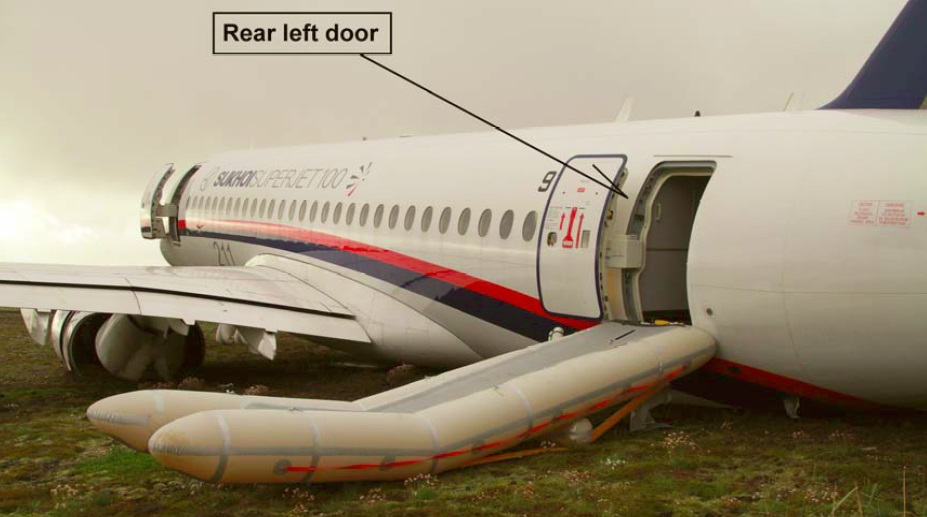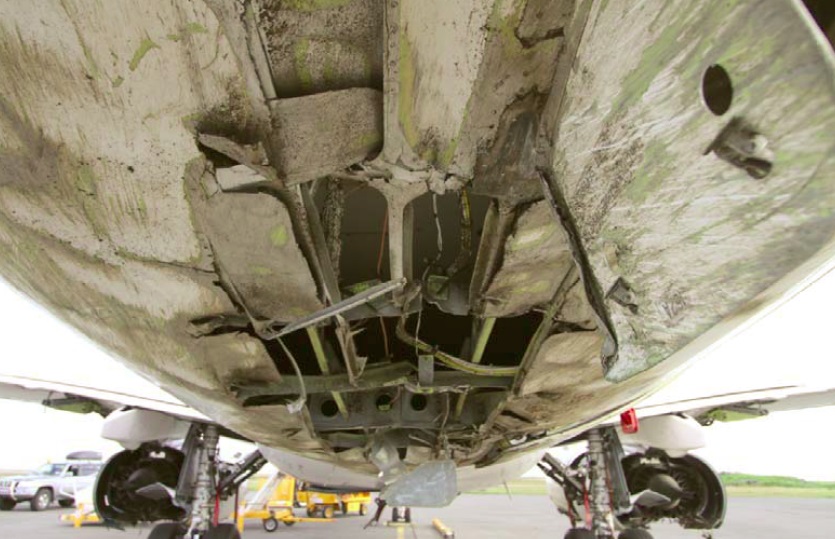Looks like trying to complete the final tests before weather set in set these guys up for failure.
Fatigued Flight Test Crew Crosswind Accident - Aerossurance

The RNSA concluded "that human factors played a significant role in this accident". In particular significant fatigue was evident.
The Russian Federal Aviation Regulation limits the duty period for test pilots (preflight preparation and test flight duration) to 8 hours. On the day, the commencement of flying has been slipped back several times. So whereas the first flight had been due at 14:00 it actually took off at 19:57, with the crew spending their time as follows.
8:30 -10:00 – preliminary preparations to flight in the hotel;
10:00 – 12:00 – rest in the hotel;
12:00 – 13:00 – lunch in the hotel;
13:00 – 18:00 – rest in the hotel;
18:00 – 18:30 – dinner in the hotel;
18:30 – 19:00 – transfer to the airport (start of shift according to Sukhoi);
19:00 – 19:35 – preflight training;
19:35 – 19:45 – transfer to the aircraft.
19:57 – 21:40 – first flight;
22:35 – 00:24 – second flight;
01:16 – 03:07 – third flight;
- 04:03 – c6:20 – fourth flight (ended at 05:23 with the accident).
The RNSA comment that each rescheduling had required some crew interaction during their rest period. They do nor detail the previous night's sleep though.
The accident occurred 10 hours and 53 minutes after the flight shift started and 20 hours and 53 minutes after the preliminary preparation started in the hotel at 08:30.
The ITSB [RNSA] concludes that although the flight crew was well rested prior to the originally planned flight duty time, it was not well rested at the time of the actual flight duty time due to significant and repeated delays.
This was done because the time for flight test campaign was about to finish and the weather forecast for the following 3 days did not have suitable weather conditions for the flight test program.
Additionally, the pilot flying has remained in Iceland during the test campaign (whereas other personnel had been rotated) and was on his 30th test flight in less than a month.
The RNSA note that:
Performance decrements associated with periods of prolonged wakefulness have been addressed in multiple research literature. Research has shown that performance on cognitive tasks, mental problem solving, vigilance and communication tasks shows a 30% decrement after 18 hours of wakefulness. After 42 hours, performance degrades by 60%. Performance degradation is therefore progressive, becoming worse as time awake increases.
Based on the above research and with respect to the preliminary flight preparation starting at 08.30 in the morning of July 20th, ITSB [RNSA] fatigue calculations estimated the task performance of the flight crew to have degraded approximately 46% at the time of the accident.
One of the more sensitive measures of performance degradation due to the fatigue associated with continuous wakefulness is reaction time. People who are fatigued, reliably react more slowly to situations and stimuli that require rapid cognitive or physical responses [as required for the accident flight test].
The accident occurred during night at 05:23, at the time of day when the performance and cognitive function of the pilot flying would have been at its low point...
An indicator of flight crew fatigue was that standard callouts were not made when initiating the go-around.
The pilot flying attempted the go-around with the use of the inoperative engine TQL and 15 seconds passed before he corrected this.
